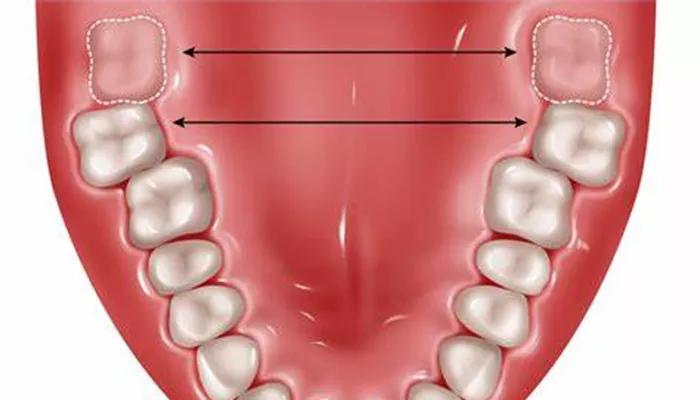Wisdom teeth, also known as third molars, are the last set of molars that typically emerge in a person’s late teens or early twenties. These teeth are often associated with various dental issues, including impaction, crowding, and infection.
Understanding the average number of wisdom teeth and their implications for oral health is crucial for both patients and dental professionals. This article will explore the average number of wisdom teeth, the reasons behind their variability, and the potential consequences of having them removed or retained.
What Is Wisdom Teeth?
Wisdom teeth are the final molars in the dental arch. Most people have four wisdom teeth, one in each quadrant of the mouth. However, the number of wisdom teeth can vary significantly among individuals. Some people may have fewer than four, while others may have more, and some may not develop any wisdom teeth at all.
Average Number of Wisdom Teeth
The average number of wisdom teeth in adults is typically four.
However, it is essential to note that this number can vary. Research indicates that:
Approximately 35% of people have fewer than four wisdom teeth.
About 10% of the population may have more than four wisdom teeth, a condition known as hyperdontia.
Some individuals may not develop any wisdom teeth, a condition known as agenesis.
The variability in the number of wisdom teeth is primarily due to genetic factors. Studies have shown that the presence or absence of wisdom teeth can be hereditary, meaning if your parents had fewer wisdom teeth, you might too.
see also: How Long Does Swelling Last After Wisdom Teeth Surgery?
Development of Wisdom Teeth
Wisdom teeth usually begin to develop in the jawbone during adolescence. They typically erupt between the ages of 17 and 25. The process of eruption can vary significantly among individuals. Some people may experience no issues during eruption, while others may face complications.
Impaction of Wisdom Teeth
Wisdom teeth are often impacted, meaning they do not have enough space to emerge properly. This can lead to various dental problems, including:
Pain and Discomfort: Impacted wisdom teeth can cause significant pain, especially if they push against adjacent teeth.
Infection: The area around an impacted tooth can become infected, leading to swelling and additional complications.
Crowding: Wisdom teeth can crowd existing teeth, leading to misalignment and bite issues.
Due to these potential complications, many dental professionals recommend the removal of wisdom teeth, especially if they are impacted.
Reasons for Wisdom Teeth Removal
There are several reasons why dentists may recommend the removal of wisdom teeth:
Impaction: If the wisdom teeth are impacted, they can cause pain and lead to infections.
Crowding: Wisdom teeth can push against adjacent teeth, causing crowding and misalignment.
Cavities and Gum Disease: Wisdom teeth are located at the back of the mouth, making them difficult to clean. This can increase the risk of cavities and gum disease.
Preventive Measure: Some dentists recommend removal as a preventive measure to avoid future complications.
Alternatives to Removal
In some cases, if wisdom teeth are healthy, fully erupted, and positioned correctly, they may not need to be removed.
Dentists may monitor the teeth and recommend regular cleanings and check-ups to ensure they do not develop problems.
The Impact of Wisdom Teeth on Oral Health
The presence or absence of wisdom teeth can significantly impact oral health. Here are some key points to consider:
Oral Hygiene: Wisdom teeth can complicate oral hygiene. Their position makes them difficult to clean, increasing the risk of cavities and gum disease.
Jaw Health: Impacted wisdom teeth can lead to jaw pain and discomfort. In severe cases, they can cause damage to surrounding teeth and bone.
Overall Health: Poor oral health can have implications for overall health. Infections from wisdom teeth can potentially lead to systemic issues if not addressed.
Recommendations for Patients
Regular Check-Ups: Schedule regular dental check-ups to monitor the development of wisdom teeth.
Maintain Oral Hygiene: Practice good oral hygiene to reduce the risk of cavities and gum disease.
Consult Your Dentist: If you experience pain or discomfort related to your wisdom teeth, consult your dentist for an evaluation.
Consider Removal: If your dentist recommends removal, consider the potential benefits of preventing future complications.
Conclusion
In summary, the average number of wisdom teeth is typically four, but this can vary widely among individuals. Genetic factors play a significant role in the development and presence of wisdom teeth.
While many people experience complications related to their wisdom teeth, others may retain them without issues. It is essential for individuals to consult with their dental professionals to determine the best course of action regarding their wisdom teeth. Regular dental check-ups and open communication with a dentist can help ensure optimal oral health and address any concerns related to wisdom teeth.

